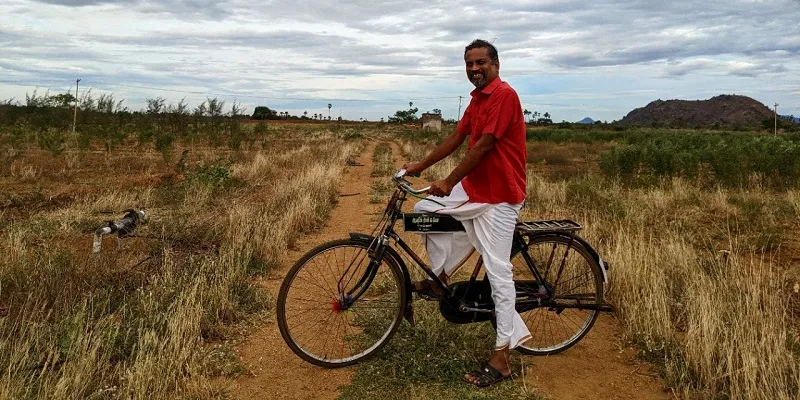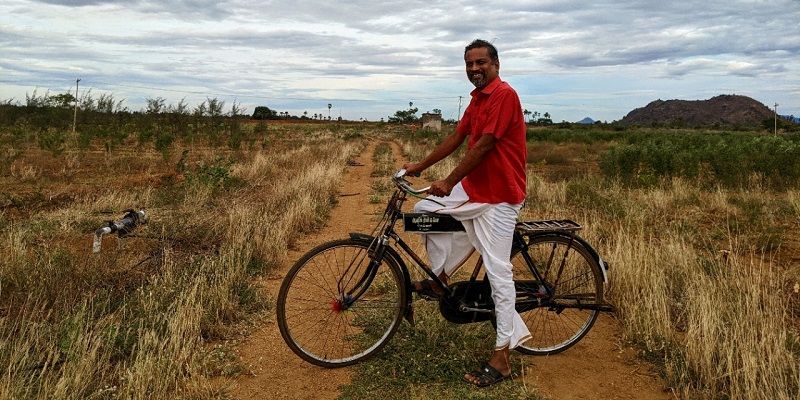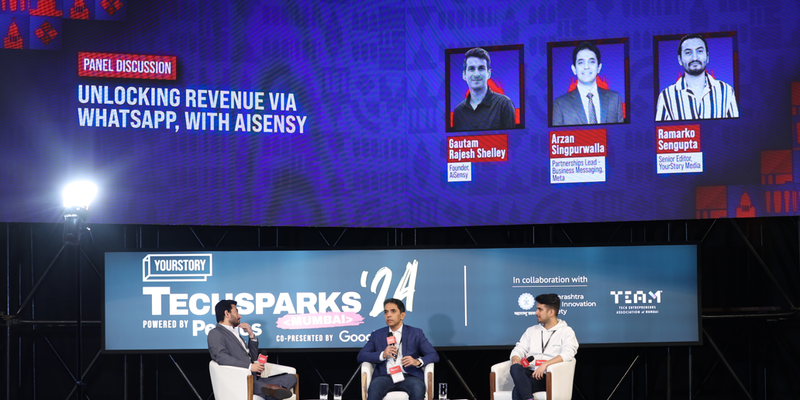SaaS is here to stay: Top events that defined the sector in 2020
As COVID-19 saw accelerated digital adoption across businesses all over, Indian SaaS companies too made a mark in the sector. In fact, two new SaaS startups entered the unicorn club this year.
According to YourStory Research, in 2020, SaaS startups raised $174.5 million across 46 deals. While this was a 39 percent drop from 2019, the sector grew in various metrics. Two SaaS startups — and — entered the unicorn club.
Indian SaaS Report 2020 by Bain & Co states,
“The Indian Software as a Service (SaaS) landscape is on the cusp of a transformation. Over the last five years, the number of funded SaaS companies has more than doubled and the number of SaaS companies drawing Series C or later stage capital has quadrupled, representing significant traction.”
Data suggests that India currently accounts for over 2.5 percent of the global SaaS pie. The number of SaaS companies has also grown exponentially over the years. Bain & Co claims that India has 7,000 to 8,000 players in the sector, almost double of what it was five years ago.
It suggests that Indian-heritage SaaS companies may clock $18 billion to $20 billion in revenue and capture up to nine percent share of the global SaaS market by 2022.
Nasscom stated that the Indian SaaS market is estimated to hit $3.3 billion-$3.4 billion by 2022 and grow 6X by 2030. It is true that COVID-19 will have a lasting effect on businesses, and going forward, adoption of digital tools is only poised to grow.
Here are some major events that defined the SaaS sector this year.
Two new unicorns

The team of Postman.
Postman claims that companies using its API platform show vast improvements to development, collaboration, and testing. According to the startup, these improvements include API development that’s five times faster, collaboration that’s 10 times more effective, and the ability to find and fix bugs four times faster.
In June, it raised $150 million in its Series C round, led by New York City-based venture capital and private equity firm Insight Partners, at a valuation of $2 billion. Earlier investors — CRV and Nexus Venture Partners — also participated in this round.
Founded in 2014 by Abhijit Kane, Abhinav Asthana, and Ankit Sobti, the platform is used by 11 million developers and more than 500,000 companies, including the likes of Microsoft and Twitter.
Our second SaaS unicorn is Zenoti. Founded in 2010 by Sudheer Koneru and his brother Dheeraj Koneru, Zenoti initially launched as ManageMySpa, an all-in-one cloud-based software solution for the beauty and wellness industry.
The Hyderabad and Bellevue-based enterprise cloud platform, announced the closing of a $160 million Series D funding led by private equity firm Advent International, through Advent Tech and affiliate Sunley House Capital, at a valuation of more than $1 billion.
With 100 percent year-on-year growth in 2020, Zenoti’s solutions serve all aspects of consumer engagement, allowing for easy appointment scheduling, self-check-ins, automatic payments, and more. The startup supports a portfolio of global brands, including European Wax Center, Hand & Stone, Massage Heights, Rush Hair & Beauty, Sono Bello, Hair Cuttery, Profile by Sanford, and most recently, Toni&Guy.

Sudheer Koneru, CEO at Zenoti
Zoho goes rural
Earlier this year, Sridhar Vembu, Founder of , walked YourStory through the village he has chosen to stay in — at a remote southern district in Tamil Nadu. He said how he teaches Math and Science at the village school, and whenever he gets a chance, explains the harmful effects of plastic on the planet to his students.
The experiment in Tamil Nadu villages was conceived after a survey was conducted in Zoho Corp. The company found that a little over 40 percent of its total employees — around 3,500 people — said they would like to work closer to their hometowns.
Zoho will now have offices in ten villages. Once the work in the first 10 villages gets underway, Sridhar says similar models will next be adapted in two villages in Kerala, and one in Andhra Pradesh. He adds that if successful, this model could be replicated by other companies for their employees. Not just in India, but Sridhar is going to adopt the model in Mexico (Queretaro), the US (Austin, Texas), and Japan.
“One just has to go and visit the Bay Area and see how people are living at a place closer to their hometowns. The pandemic has shown us that people will want to be close to their families and friends,” the founder said.

Sridhar Vembu, Founder of Zoho
Zoho versus Freshworks
This year also marked the year when two of India's favourite startups went to court over alleged information theft.
Zoho alleges that founders used its confidential documents, customer details, and revenue numbers to raise money, even though they were bound by confidentiality as former employees of Zoho.
The plaintiff, Zoho Corp, has alleged that Freshworks founders "have worked Zoho for nine years prior to their founding of Freshworks, Messrs Mathrubootham and Krishnasamy were privy to confidential Zoho product, financial, pricing, and customer information and were well aware of Zoho employees’ creation of and access to Zoho competitive business information.
This allegation was denied by Girish Mathrubootham, the Founder of Freshworks.
Freshworks lawyers have said that the Zoho plea lacked “specificity and particularity” in its allegation. The matter is still in court.
The rise of India and Asia SaaS
, a platform for SaaS startups to showcase their global chops, aims to capture Indian opportunity.
Today, there are more than four Indian SaaS companies with revenue of more than $100 million each, there are two companies that have crossed $50 million, and 37 companies between $5 million and $50 million. SaaS companies have a gross margin of 80 percent and grow based on recurring revenue.
SaaSBOOMi announced a partnership with Indifi, an NBFC that supports small businesses, to help entrepreneurs get working capital financing during the pandemic and pull through the slowing economy.
The corpus of this debt funding initiative will be Rs 40 crore to Rs 50 crore, and is available to those who have an annual revenue run rate of $250,000 and do not make money from IT services.
SaaS startups can apply for this funding line on the SaaSBOOMi website, where an expert group will curate the applications and run it past the NBFC to fund the startup. By the way, the loan is collateral-free.
Accel founders stack
Accel, which has funded several startups like Freshworks and , have started Founder Stack, a programme for SaaS entrepreneurs.
Accel met over 50 founders to understand their early-stage challenges and current fundraising hurdles in order to understand how to help them.
They found that the most common challenges the founders faced were lack of contextual clarity to build a SaaS company, lack of good venture development support, lack of outcome-based events, startup programmes making founders take shortcuts, and high costs or dilution to get high-quality support.
They received 400 applications out of which 15 startups, having 32 founders, were selected.
The programme covers various outcomes including developing a market map, building product teams, designing cross-border strategy, structuring marketing engine before product-market fit, choosing GTM strategy, sales pitch tuning, and much more across all five layers — infrastructure, market research, product, customer growth, and presentation.
The programme also provides infrastructure access to working space at Accel Launchpad in Bengaluru, a financial grant of Rs 1.5 lakh as an allowance, compliance support, exclusive deals, special cloud support, and more to build the SaaS startup.
Edited by Saheli Sen Gupta













